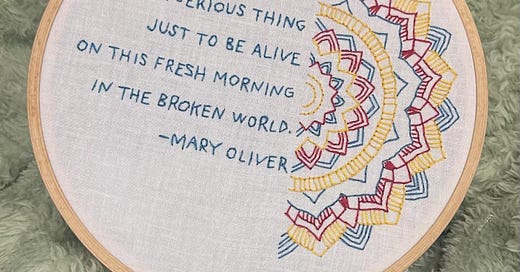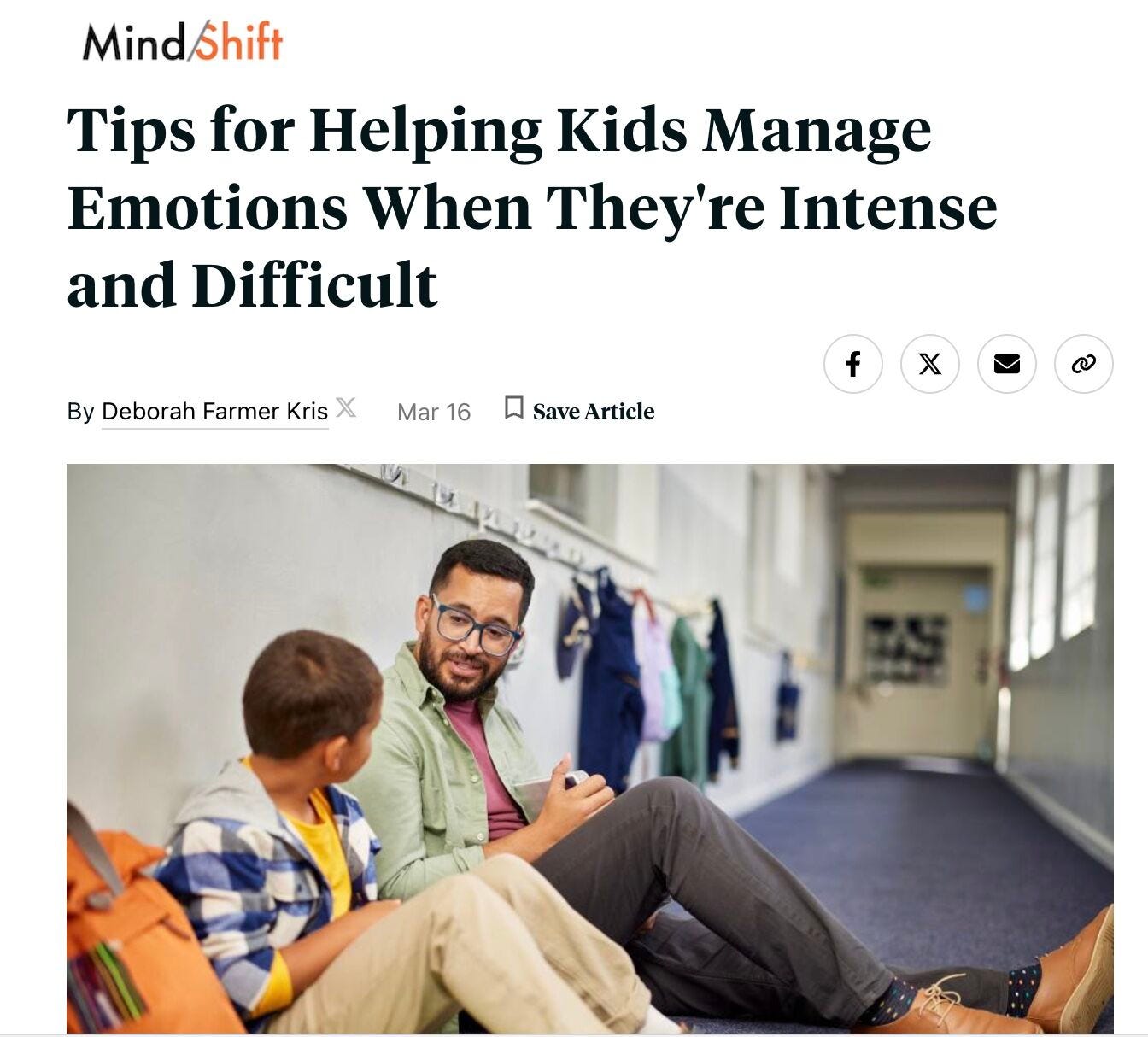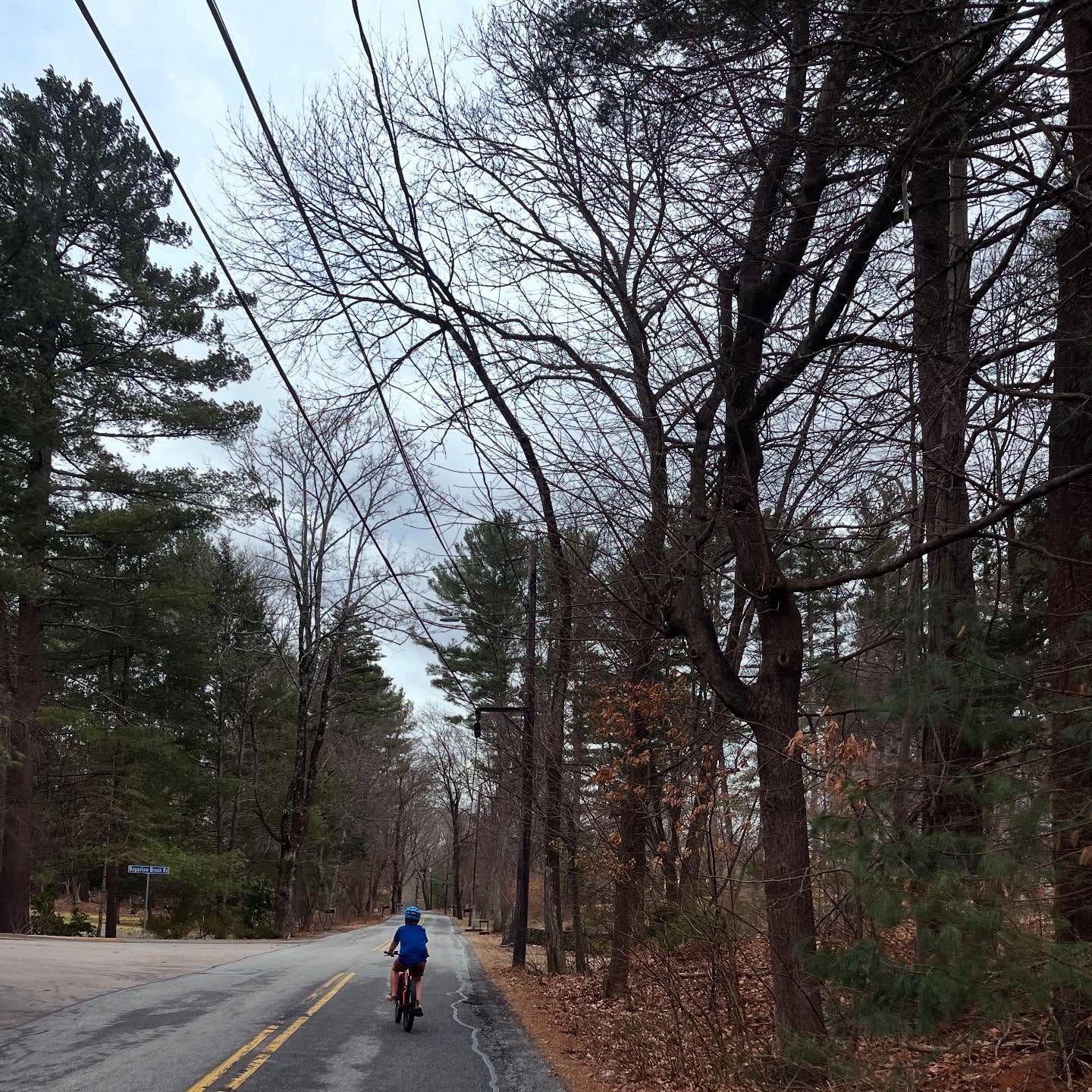One college summer, I travelled to Savannah, Georgia on a work trip. The company put me up at the Eliza Thompson House, a small inn on a cobblestone street. When I walked into the courtyard, a smell overwhelmed me. It smelled exactly like my late grandmother’s home. I couldn’t describe in words what my her home smelled like (other than cats — and I wasn’t smelling that). All I know is that for a whole week, every time I walked into that small courtyard, I was flooded with sensory memories of my adorable and adoring grandma.
This week, I have an article up in MindShift about kids and emotions, drawing on my interview with neuroscientist Ethan Kross and his new book “Shift: Managing Your Emotions – So They Don’t Manage You.”
Kross’s book describes several for tools for shifting emotions out of high gear, but one chapter got me really excited. He talks about a regulation tool hiding in place sight: the five senses.
Our emotions and our senses are deeply entwined. As humans, we use our five senses to quickly assess and make sense of our environment. “This is as primitive as you get,” Kross told me. “We need to know whether to approach or avoid things.”
So when we smell something rotting, we will likely have an automatic feeling of disgust. When I walk onto a beach and hear the waves, just the sound prompts my muscles to relax and breathing to slow. “All of these sensations are pushing your emotions around really, really fast,” said Kross, because “knowing what to approach and what to avoid is fundamental for us being successful in this world.”
Here’s what’s exciting: This close connection between senses & emotions means that we can consciously use sensations to support our kids’ emotional well being.
Kross told me that, as a dad of adolescents, he embraces the DJ role. If he needs to shift a mood, he might put on Taylor Swift in the car, or even jazz it up more by singing or dancing in a way that is “just ridiculous and so that amplifies the emotional experience.”
Parents can use the sensory network to subtly support kids emotions in ways that “fly totally under the radar,” said Kross. Think about lighting a favorite scented candle while the kids are doing homework, rubbing their back as you sit together on the couch, dimming the lights during bath time, or tucking a soft stuffed animal into their arms as they go to sleep. “These are effortless things we can do to shift emotions around and it’s an untapped resource,” he said.
When children are experiencing an intense emotion, some of the proven strategies – like deep breathing or journaling – may feel out of reach. These techniques require effort or following steps. Working with the sensory system, in contrast, can be an initial way to more effortlessly dial down the emotion. In this way, our senses offer “incidental tools for managing emotions.”
Again, there is no one-size-fits-all. When they are emotionally activated, some kids crave physically pressure – like a bear hug or a weighted blanket – while others may bristle at contact and find the sensation of bouncing on a mini-trampoline or swinging more soothing.
But this is a great conversation we can have with kids and teens. What songs might go on a “I’m feeling crappy” playlist? What physical sensations boost their mood? What sights and tastes and smells do they find comforting or restorative?
Is it any wonder that the emotion of awe is closely tied to our sensory system, too?
As I talked to Kross, my mind flitted back to my years of awe research — and how his insights matched what we know about wonder. Think about these sensory experiences:
Seeing a cathedral ceiling, a watercolor-like sunset, or blooming cherry blossoms.
Hearing the first frogs of the season, Cynthia Erivo’s high notes, or a loved one’s voice on the other end of the line.
Smelling the earth after a summer rainstorm or the top of your baby’s head.
Tasting your grandmother’s meatball recipe years after she passes away.
Touching spongy moss in the forest or a puppy’s impossible soft fur.
By tuning into our senses, we increase our chances of tuning into awe and all of its emotional and cognitive benefits. It can be as simple as going outside as asking yourself: What do I see? What do I smell? What do I hear? What do I feel?
Cheers,
Deborah
P.S.
365 Days of Wonder: Week 11
In preparation for the release of “Raising Awe-Seekers: How the Science of Wonder Helps Our Kids Thrive,” I’m keeping an awe diary: one entry each day about something that caught my attention, gave me goosebumps, brought tears to my eyes, or made me say, “Wow.”
Day 71:
THE PEEPER FROGS ARE AWAKE 🐸🎵😭
Day 72:
I stitched the quote I needed to hear tonight. Thank you, Mary Oliver.
Day 73:
Took my dog to be groomed. While he ran around the groomer’s backyard with her pups, she showed me an envy-inducing “She Shed” that her dad built for her last year. Mind you that she is my age and he is in his 70s. She got teary and said, “He’s the best man i’ve ever known. I’m so lucky.”
Day 74:
I didn’t need my Merlin app to identify woodpeckers today. At least three were rattling the neighborhood at dawn with their hammering. Another news, I heard my first Red-Winged blackbird of the season.
Day 75:
First spring bike ride with my kid.
Day 76:
I wasn't sure whether my youngest still believed in Leprechaun magic and did the usual low-key-but-fun mischief around the house after the kids went to bed. When he came down the stairs this morning, he broke into a huge grin and whispered to me, "You did a good job this year, mom!" And there it is. Another kind of magic.
Day 77:
I pulled over when I saw this steeple reflecting the sunset.









Your leprechaun story brought tears to my eyes, in part b/c it brought up a memory: One year, when my kids were little, I forgot. Tired, overwhelmed, who knows why, I forgot. My oldest son, then maybe 10-12 yrs old, didn't. At some point in the night or early morning, he must've snuck downstairs, saw nothing was changed, and took action. Lemme tell you: the leprechauns created chaos that night! I was stunned when I woke up (I knew I hadn't been the leprechaun) & so moved when I found out what happened. :) (Also, re emotions & the 5 senses -- I'm planning to go to a coffee house to work later today b/c I know I need a change of scenery. I never really thought about it before, but suspect the sensory experience is all a part of it -- the smell of coffee, the soft hum of other conversations, the sight of others gathering, interacting working -- it all settles my emotions in a way that sitting here at my desk, amidst my physical and mental mess, does not)